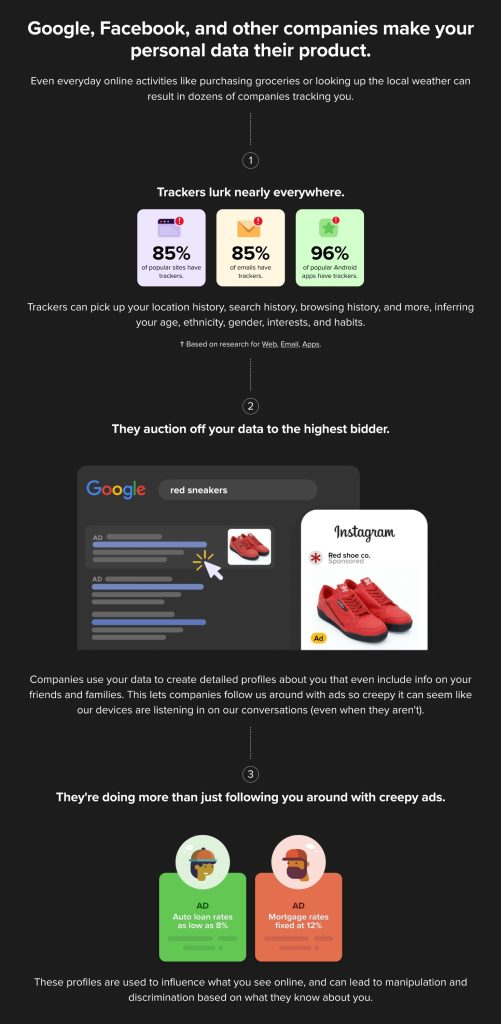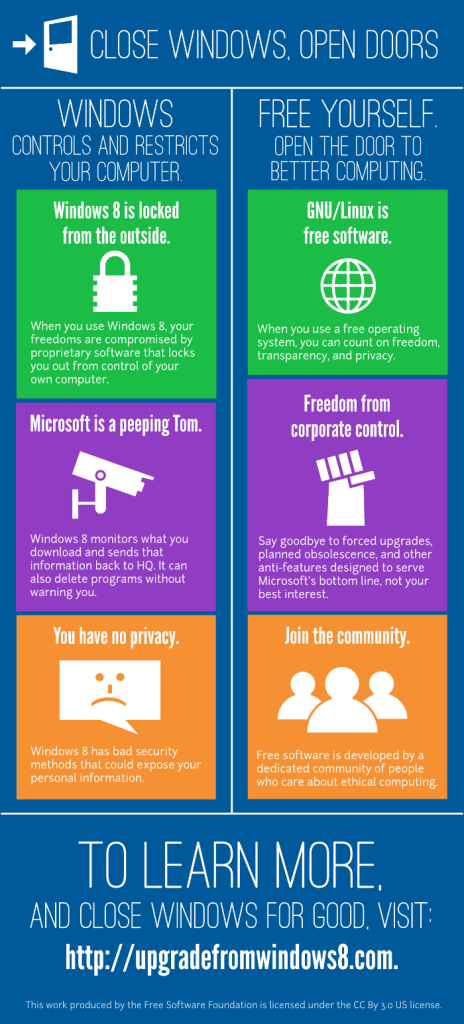• (Updated )
Why I don’t care about surveillance capitalism anymore.

Some people believe that, every human on earth today has their digital counterparts. Some even embrace their human and inhuman personalities (like Reinhart and the Korean girl group æspa), but others are very concerned enough that their “digital other half” is being exploited by certain companies for advertising and social experimentation. That’s the essence of surveillance capitalism.
One of my favorite things about writing articles in the cyberspace, I can freely express my opinions and may the digital world respect them. Like those tech people actively advocating their LGBTQ rights and beliefs, I will actively advocating my rights and beliefs behind this decision: Christ. Otherwise, it would be a disgrace to the freedoms set in A Declaration of the Independence of the Cyberspace: “We are creating a world where anyone, anywhere may express his or her beliefs, no matter how singular, without fear of being coerced into silence or conformity.”
This blog post sets the foundation behind a movement of mine and some others, namedly “the third way of cybernetics”, aka. “the third way of how should we build and manage advances in information technology to make them benefit the public.”:
- The first way is to let the technology be deeply integrated into the human industry, to fund companies and research groups, which may be viewed as a form of capitalism.
- The second way is to conservatively control the technology with a greater focus on maintaining the social ethics responsibly and sustainably. The “ethical alternatives” as described here are often designed to work exclusively on this second way.
- At The Third Way, we believe in those both ways with a twist. We conservatively control how the technology should evolve along the community, while engaging in the industry in accordance to Christian basics of social and work ethics. Our difference with the first is that we seek for sustainable social impact instead of industrial profits, just like the second; and our difference with the second is that we do not expect that the tech industry to be intentionally small and poor as a measure to withheld (evil) corporate intentions of capitalizing these technological advancements.
What is surveillance capitalism?
For those who are uninitiated, surveillance capitalism is the ability for individuals and companies to establish their life and business by massively spying around people, and one of the biggest use of this is to profit from digital personalized advertising.
One of the simplest descriptions about this fear is clearly described by the alternative search engine DuckDuckGo:

...and Purism, a manufacturer of pure Linux laptops and mobile phones:
When you’re on social media, use a digital home assistant or chat over a messaging app, store files on the cloud, enter a search term in a browser or visit a website, you’re being controlled – by a market that uses your phone or laptop, operating system and applications to collect as much information about you as possible.
Your exploited information is later sold between various companies, and the choice of withholding it is not in your control. At Purism, we provide an alternative so you aren’t forced to give up or freedoms to those who desire to control it for profit.
Why Purism? by Purism
Wanna read the more complex ones? Hereʼs one, and another one, and another one.
The things we all agree.
Does watching each and individual peopleʼs behavior just to show relevant ads to them is evil? The Bible, I mean, even the Torah lists one of the basic laws that we can agree upon:
“You must not covet your neighbor’s house. You must not covet your neighbor’s wife, male or female servant, ox or donkey, or anything else that belongs to your neighbor.”
Exodus 20:17 NLT
You must not covet your neighbor’s search interests, commonly-visited places, and so on, and so on, to trick them into buying something just because the person or company behind the product wants you to do so.
But not everything that these people voiced are good to me.
Yes, I mean, the groups of people stereotypically uses Firefox or Brave with DuckDuckGo, on Linux laptops and de-Googled Android phones.

Every company is sinful by nature.
“Therefore, just as sin entered the world through one man, and death through sin, and in this way death came to all people, because all sinned.”
Romans 5:12 NIV
Just like humans who all have sinned, companies are great sinners.
We cannot judge and curse every sinful company workers as sinners.
Remember FAANG (Facebook, Apple, Amazon, Netflix, Google)? aka. the list of the most favorable dream companies that more and more junior developers are now dreaming of? I've even listened more and more of this acronym instead of GAFAM on places such as coding bootcamps and colleges. If that is not true in the European Union, let's just say, this is still true in Southeast Asia, at places near to my homeland.
Surprisingly, one author behind some of the posts I referenced acknowledge this fact:
Whenever there’s criticism of a surveillance capitalist like Google or Facebook, someone always says “but I know lots of very good people who work there.”
I don’t doubt it for a minute.
Heck, I know lots of very good people who work there!
In fact, the more wonderful they are, the more legitimacy they add to the unethical corporation they work at. It’s time we at least acknowledged that this is a problem even if we don’t have all the solutions yet.
Acknowledging the problem is the first step in making these corporations socially unacceptable so we can effectively regulate them and secure funding for alternatives. Alternatives not just in technology but also in academia where these good folks can carry out truly independent research for the common good.
Ethics as PR (or the ‘Some Very Good People Work There!’ Fallacy) by Aral Balkan
In that blog post, he believes that the solution to this problem is to build ethical alternatives, and that's why he and others have built the Small Tech Foundation (formerly Ind.ie).
However, he also believes in spreading (the awareness of) this problem to everyone so no more people are motivated to work in Google and similar companies, even though those companies are offering candies of wealth to people. Unfortunately, if you believe the teachings of Jesus Christ, He tells the exact opposite of this specific solution.
In fact, I still saw people being accepted in FAANG as an answer from God, and He doesn’t prevent His people to work in these companies for obvious ethical reasons. I realize that God is currently placing His people inside these sinful companies, like how Joseph, Esther, Daniel, Sadrach, Mesach, and Abednego were placed into kingdoms who all committed the sins of idolatry. God may not favor those kingdoms, or companies, but He is still placing His people to give another chance.
If you hate Google, pray for Google and even bless Google.
“You have heard that it was said, ‘You shall love your neighbor and hate your enemy.’ But I say to you, love your enemies, bless those who curse you, do good to those who hate you, and pray for those who spitefully use you and persecute you, that you may be sons of your Father in heaven; for He makes His sun rise on the evil and on the good, and sends rain on the just and on the unjust.
Matthew 5:43-45 NKJV
Perhaps, the most impossible thing these Big Tech antagonist people could do is to actually pray for Google, Facebook, Microsoft and others.
Right?
What some a significant number of people believed instead, is to entirely move away from GAFAM and building ethical (commonly followed by “free”, “community-driven” and “open-source”) alternatives to common products offered by them:
- Calligra or LibreOffice in place of Google Workspace (Google Docs et al.), Microsoft 365, and Microsoft Office,
- diaspora* in place of Facebook,
- DuckDuckGo or Qwant or Startpage in place of Bing and Google,
- Firefox in place of Chrome and Microsoft Edge,
- GIMP or Krita in place of Adobe Photoshop,
- GNU/Linux (especially PureOS and Trisquel) in place of Windows and macOS and so,
- Inkscape in place of Adobe Illustrator,
- Invidious or NewPipe or Piped in place of YouTube, or even better, just move to LBRY or Odysee or host a GNU MediaGoblin or Peertube instance,
- OpenDocument Format (.ODT, .ODS, .ODP, etc.) instead of proprietary Microsoft Office formats (.DOC, .DOCX, .XLS, .XLSX, .PPT, .PPTX),
- OpenStreetMap in place of Google Maps,
- Mastodon and ActivityPub in place of Twitter,
- Matrix or Signal in place of WhatsApp,
and so on.
I am an advocate of many of these alternatives, including being an active OpenStreetMap contributor, writing my bachelor thesis entirely in LibreOffice (with some help of Zotero instead of Elsevier's Mendeley). Even the @1010bots’ original designs came straight from a new Inkscape file, and currently planning this website to be compatible with ActivityPub, IndieWeb, and FSF/GNU’s strict “Free JavaScript” standards.
But it is also important for me not to move away from GAFAM, their people and products. No matter how you believe whether this would work or not, but praying for enemies is definitely a God's command for everyone.
I still have to pray for them, the Reinharts*, Esthers, Daniels, Josephs, Abednegos, Mesachs, Sadrachs (REDJAMS) of the modern world.
*aka. those people who are currently love God and technology, just like me.
The Bible never said “you are a light of the world except for Facebook”.
The Bible never said that true Christians should become a light of the world except for Facebook, or thiefs, or other companies practicing evil unethical things.
If you, at this point, realized that no matter you have tried, your online life could not be as private as you wanted, I would like to offer you a choice: to become the light of the world.
“You are the light of the world—like a city on a hilltop that cannot be hidden. No one lights a lamp and then puts it under a basket. Instead, a lamp is placed on a stand, where it gives light to everyone in the house. In the same way, let your good deeds shine out for all to see, so that everyone will praise your heavenly Father.”
Matthew 5:14-16 NLT
As the light of the world, you don't have to care whether you are being tracked or not. In fact, you are commanded not to be anonymous at most times, but clearly visible by many people, including those who track and chase you.
As a light of the world, I don't have to care whether advertisers uniquely recognize me, including what kind of videos I'd like to watch (commonly sermons and “Contemporary Christian Worship”). By gaming their “recommendation algorithms” in putting more Light content into them, they are now recommending and advertising more Light into me and countless people, the light of the world, and even more people who are outside of the Light!
The best part of this is that I'm now happy to be tracked and treated this way. Light recommendations and advertisements also keeps us to keep our fire together to shine as the light of the world. Because God intentionally wants me with the rest of the Light to do so, so every Big Tech and advertisers recognizes me, and billions of people, as the light of the world (see also Philippians 2:1-10).
What if the Big Tech becomes the Antichrist?
“If the Big Tech owns all your data and identity as the light of the world, then what happens if they, one day, decided to deny Christ and become the Antichrist?"
What a pretty good concern, and this is why praying for them is important. The decision whether in the near future, the Big Tech industry becomes an antichrist or not depends on their people, not us.
If we just care about building alternatives for ourselves, then curse and abandon every evil company to die as an evil company, we cannot guarantee that the evil company will one day become good, because we do not have the control, and even don’t want to control, the internals of the companies.
The worse case: these cursed evil companies eventually become more evil, as expected in the Holy Bible and a bunch of science fiction writings. And I believe the best way to prevent that to happen is by setting the war within, not outside, the workforces and employment boundaries of the companies.
What we need instead is a revival of people working in GAFAM and alike. And that's the new mission I'd like to share today.
